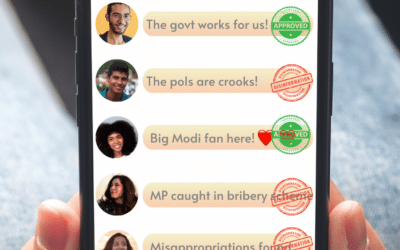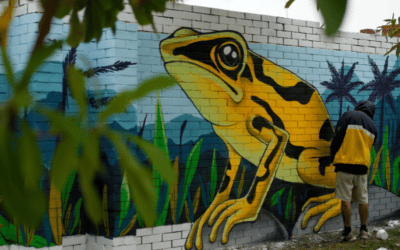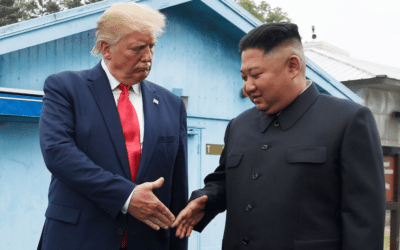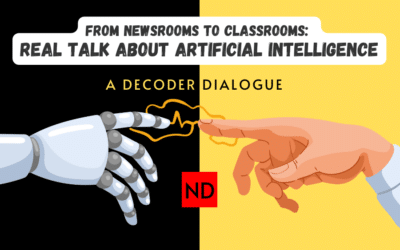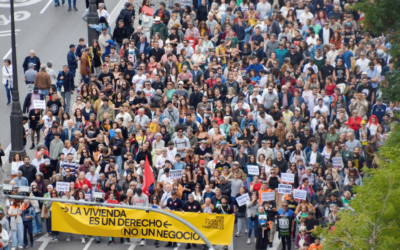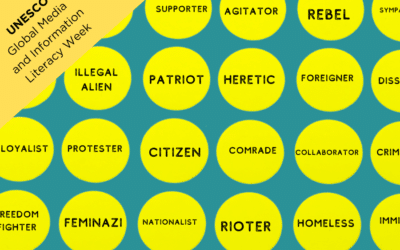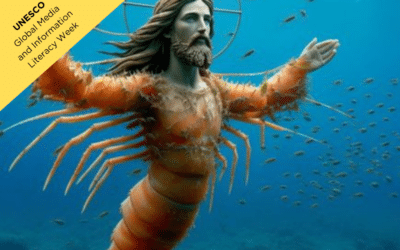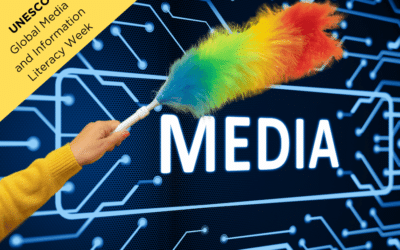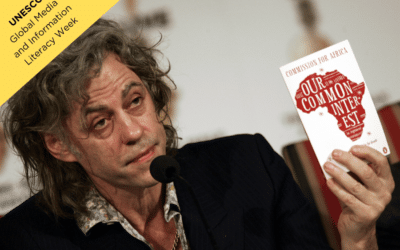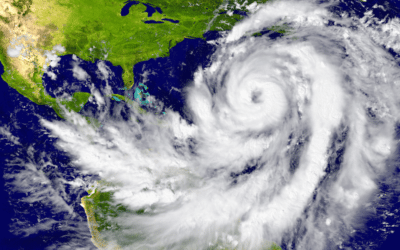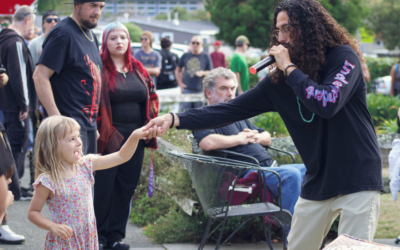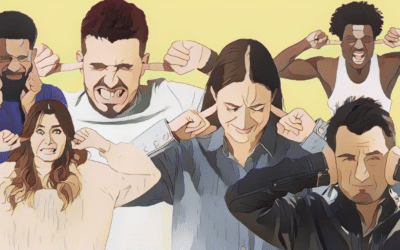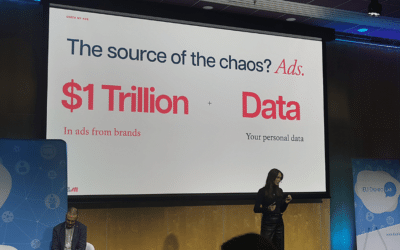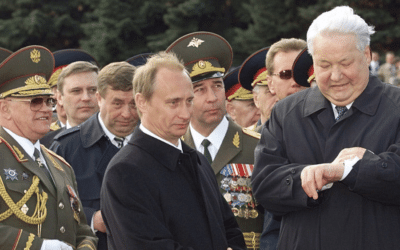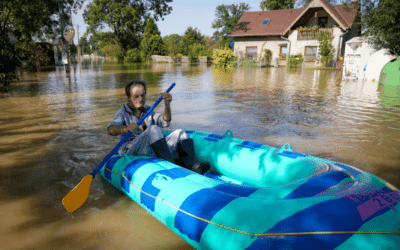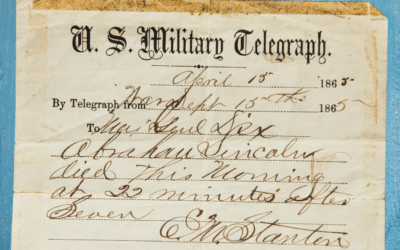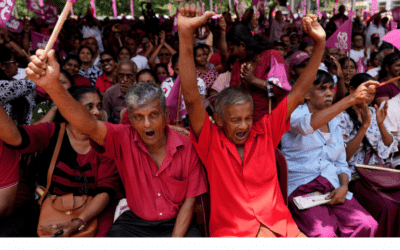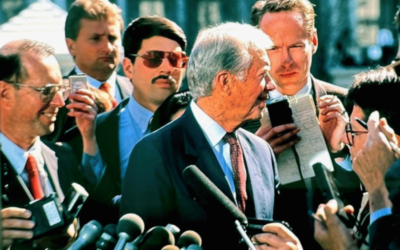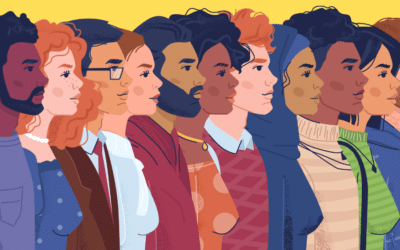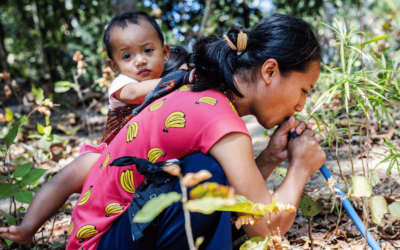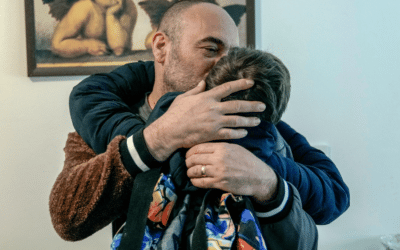Newsfeed
Trading in bullets for ballots in Sri Lanka
After failed attempts to topple the Sri Lankan government, a rebel group has come to power through peaceful means, with the help of a youth movement.
Can a government fact check be fair?
The Indian government seeks to establish a system to weed out disinformation. But it seems targeted at only posts that knock those in power.
Top Tips: How to cover an event without putting people to sleep
Not everyone can attend big events like COP29 or protests in big cities. The job of the journalist is to be there for those who can’t.
How floods in Spain brought a deluge of disinformation
After massive floods in Valencia, fake news messages on the internet seemed targeted to intensify chaos and undermine trust in the authorities.
Decoder Replay: Why we should welcome immigrants to our countries
Many countries are turning away immigrants. But they should be welcomed for the often outsized contributions they make.
Studying abroad changes how you think of home
A trip to Bordeaux, France opened the eyes of three U.S. teens in ways they hadn’t expected.
Can we save the planet and the life that’s on it?
As nations gather in Baku for COP29 to fight climate change, a less noticed gathering took place in Colombia to protect the myriad forms of life we might lose.
Top Tips: You can be a winner! Or not …
Even if you think you won’t win, there is value to entering media competitions. And maybe, you might win.
In Ecuador, a community ignored struggles to stop violence
In a key stop in a global cocaine network, residents of Duran are trying to just live their lives in a place that has become the murder capital of the world.
Decoder Replay: Why do people believe conspiracy theories?
Trump faked his assassination attempt. Princess Di wasn’t killed in an accident. The moon landing never happened. Why do people believe disproven ideas?
Decoder: North Korea struts onto the global stage
The renegade nation launched ballistic missiles into the sea and sent troops to Russia and rubbish to its southern neighbor. Can Kim Jong Un be controlled?
In politics, how much influence can pop stars wield?
Taylor Swift, Bad Bunny and Beyoncé all endorsed the losing side in the U.S. election. Was their power to push followers to vote overblown?
Top Tips: How to change up how you cover climate change
We’re positive climate change is happening. But reporting doesn’t have to be all negative.
Burnout in the one job you can’t quit
High rates of parental stress are cropping up all over the world. For many, child-rearing isn’t fun and games.
Decoder Replay: Why a disaster in one place shakes the world
Financial markets are so connected that floods, drought or war in one country can sink an economy halfway across the globe. How does that work?
How the U.S. election plays out elsewhere
Western countries have been obsessively following the U.S presidential election. But around the world, there are reasons people are taking notes.
Can religious turmoil change how the world sees Ukraine?
New laws that affect what church people can pray in could cost Ukraine support from those who believe in religious freedom.
Top Tips: How AI can help you
We fear AI taking over the world. But wouldn’t it be great if it could take over some tedious tasks and free us up to do great things? It can.
When the price of housing is through the roof
In Madrid and across Europe people are rising up in anger that housing has become like a real-life game of Monopoly, and out of reach for too many.
Decoder Replay: Beware of shorthand labels
Are the Houthis in Yemen “Iran-backed” or “Iran-aligned”? Are Hezbollah members “terrorists” or “liberators”? Labels can make a big difference.
How “Shrimp Jesus” and fake books help AI spammers lure users
Social media users report a rise in bizarre AI-generated images. What does this tell us about the direction of viral content?
Brushing up on media literacy
Can you spot a deep fake and separate fact from opinion? How do you know what you know? Do you understand how algorithms work? We’ll help you sort it out.
Top Tips: How does media get you to care?
Millions die of hunger in one place. No one cares. Millions are dying of hunger somewhere else and the world sends food. What’s the difference?
Where media literacy is fundamental
In Finland, teaching media literacy in schools is a way to stave off the disinformation invasion that looms on its border.
Decoder Replay: Can we get ahead of extreme weather events?
Poor nations are hardest hit by extreme weather, but they can lack resources to produce forecasts that can save lives. What can be done?
Decoder: Is the U.S. election really that important?
The Western world is obsessed with the upcoming contest between Donald Trump and Kamala Harris. The rest of the world? Elsewhere, other things are happening.
When all the news about climate change gets you down
We worry about a future where it is too hot or too cold and extreme environmental events become the norm. That affects our mental health now.
Top Tips: How to write a news story
Journalists use story formats to organize information and write and publish a news story quickly. Here is one way to write a news article using a story format.
Connecting neighbors one porch at a time
A hyperlocal movement has spread across countries and continents to bring people out of their homes and connect with their neighbors over music.
Decoder Replay: Why listen to hateful views?
These are polarising times. If we want to heal divisions and save democracy, we need to listen to views we don’t like to hear.
Decoder: Has Israel launched a war that cannot end?
The assassinations of leaders of Hamas and Hezbollah, an invasion of Lebanon and the all-out assault on Gaza beg the question: Does Israel have an end game?
Nurturing facts out of the weeds of disinformation
To counter the lies slowing the fight against climate change and harming our democratic institutions will take a global effort. But people are mobilising.
Top Tips: A dream career is not out of reach
The journalism field prizes expertise. That gives you the ability to turn your passion into a career. You just have to start early and stay focused.
Should it be easy to buy dangerous chemicals?
Online sales of pesticides helps farmers in places far from suppliers. Can we keep them out of the hands of people who shouldn’t have them?
Decoder Replay: Why Europe worries about French debt
If you owe too much money and can’t repay it, you could lose your car or home. Can a nation have too much debt? What happens then?
Do Russians prefer the pre-Putin past? Not necessarily.
We colour history with nostalgia when we are dissatisfied with the present. But for those who know only what’s now? They might not want to go back.
Extreme weather makes climate change a reality now
Even as different places adapt differently to floods and famine, heat and cold, we have to learn how to cool down our planet together.
Top Tips: Can you eliminate your bias from your story?
Journalists are trained to be objective. But what does that mean and where did that idea come from? And is it achievable?
Fighting systemic corruption through the ballot box
In Sri Lanka and elsewhere, people are telling elected politicians to clean up their act or find themselves out of a job.
Decoder Replay: If politicians lie what should the media do?
U.S. presidents have often twisted the truth. But Donald Trump has flooded the media with falsehoods in a unique challenge to democratic institutions.
Happy birthday to the president who pushed for peace
Jimmy Carter wasn’t expected to be president. When he failed to get reelected, most people expected to forget him. He ended up setting a model few could follow.
Swimming in the wake of ancient explorers
On a wild swim tour of Greece you might not brush aginst ancient stones. But each stroke you take breaks through a history as deep as the Ionian Sea.
Top Tips: It’s not too early to lead change
We asked young people from five countries this question: Is it time for young people to take charge? The answer is yes. They showed us different ways do it.
A year ago we told Europe: Lend us your ears
The community of European podcasters dubbed WePod marks its first anniversary, connecting voices to audiences across the EU.
Decoder Replay: Is the news media necessary?
How we perceive events like the war in Ukraine depends on our news sources. While never perfect, news media perform invaluable services.
What drought looks like
On the island of Java, climate change has disrupted the traditional weather cycles, leaving residents trying to figure out how to survive months without rain.
Decoder: Vietnam’s bamboo diplomacy
Vietnam has long had to dance between powerful allies and enemies. That’s left it poised to maneuver in the political chaos that now swirls around it.
Top Tips: You might get more from your first job than money
It might not be the job of your dreams. But it can give you the foundation for a successful career.
Does the stock market prefer one candidate over another?
Voting your conscience might affect money markets but perhaps not in the way many people think.
Decoder Replay: What does it mean to be German?
With an influx of migrants over the past decade, Germany is reconciling to rapidly changing demographics. The idea of German identity is evolving.


